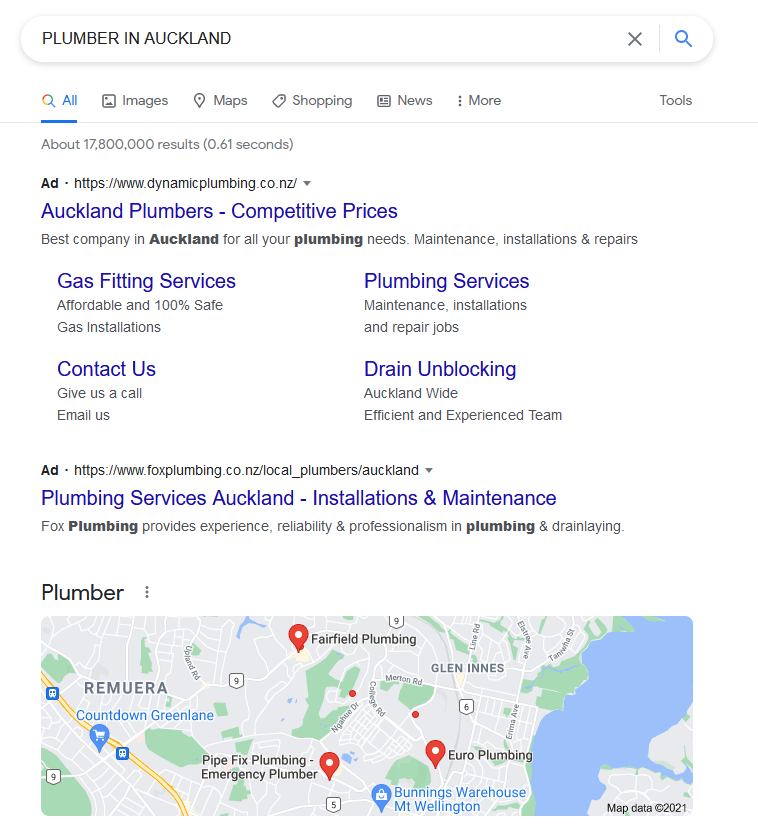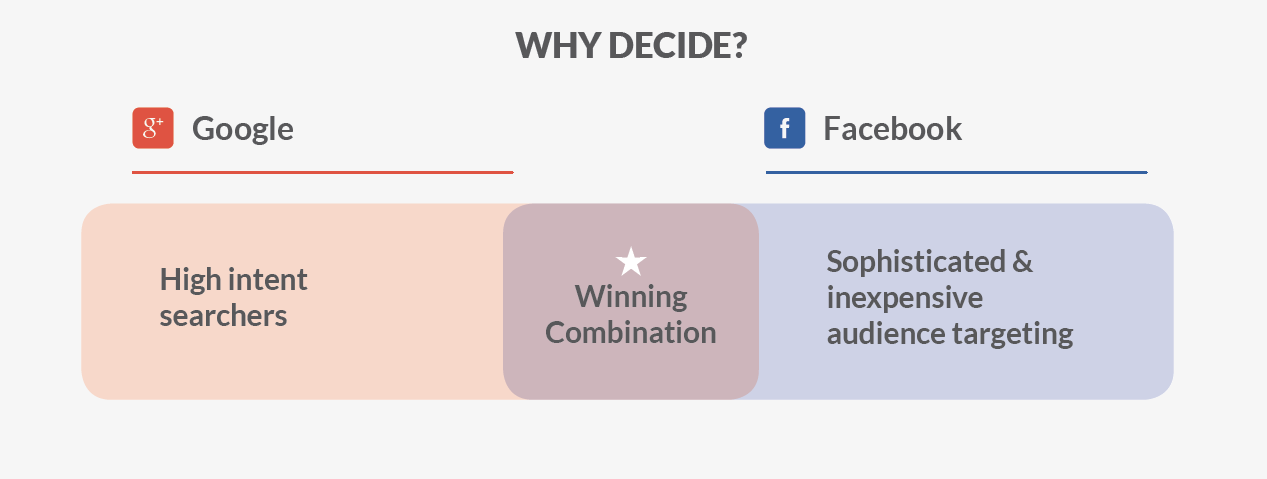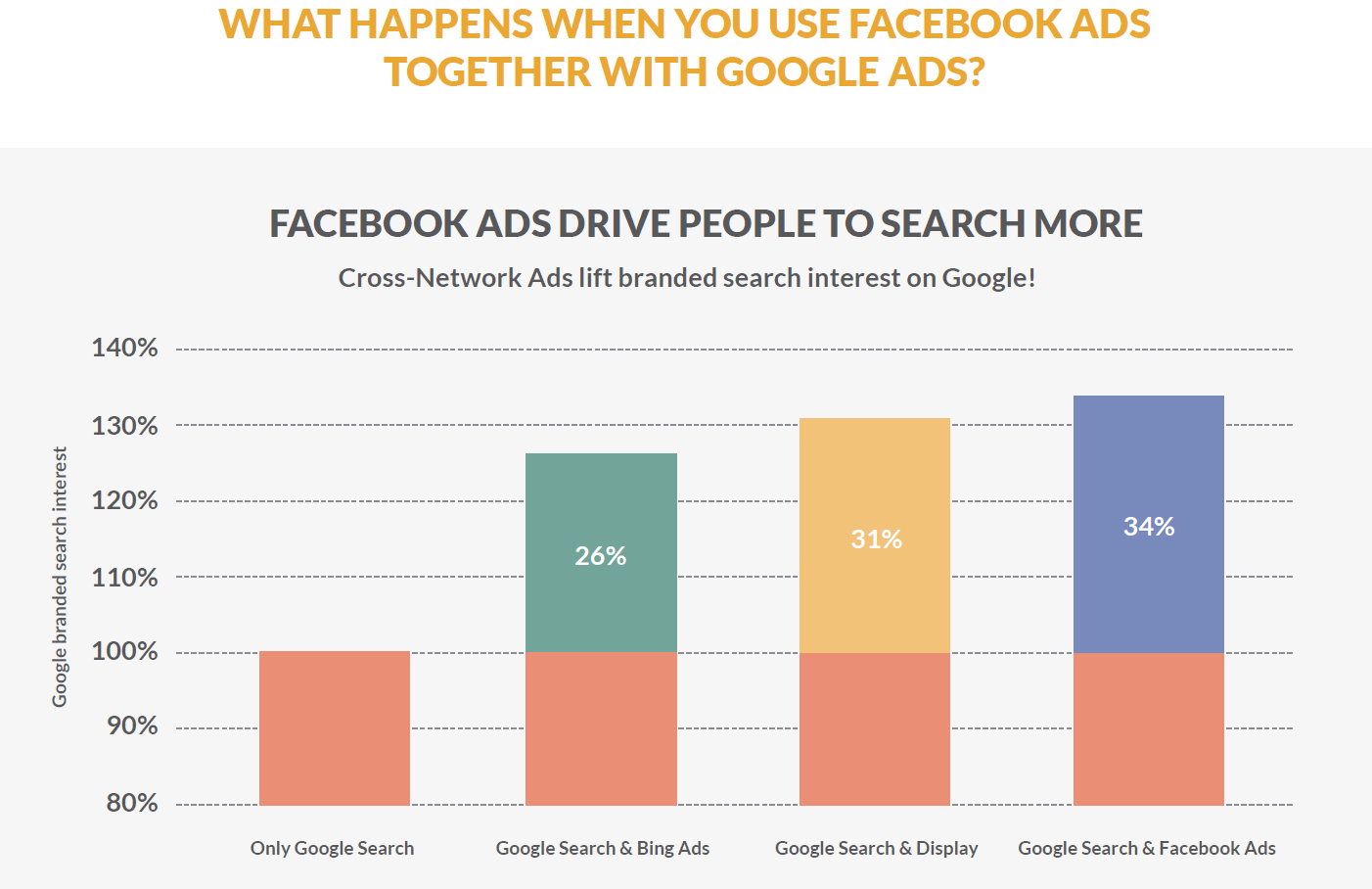With businesses looking to maximise the return on their marketing, a common question that is contemplated by them is whether they should put their money into Google Search Ads or Facebook ads.
So, what are the differences and which should they choose?
Google is the largest search engine in the world, commanding 92.47% of all searches online as of June 2021 (for more information, go to: https://www.statista.com/statistics/216573/worldwide-market-share-of-search-engines ). Google also has the largest display network in the world thanks to its ownership of YouTube.
Google’s two main ad formats are Search ads and Display ads, with the Search ads being the premier product. In order to see a Google Search ad, you need to go onto Google and conduct a commercial search. A commercial search is a search where there is commercial intent such as trying to find a plumber. A non-commercial search would be trying to find the middle name of your favourite actor.
When you conduct a commercial search, the top results (up to 4) are likely to be Google paid ads. With Google paid ads, there is high intent. That is to say, people have to deliberately put a phrase into the search box to seek results, you don’t see the ads by accident. When people click on your Google ad it is not a random act. People that click on a Google Search ad are far more likely to buy, than if they click on other forms of ads such as with Facebook. People have high intent when clicking on Google search ads.
What about Facebook? Facebook is the largest social network in the world. Their algorithm determines who sees their ads, which circulate around their platform rather than being located in fixed positions.
An individual can help influence who sees their ads on Facebook by defining their target audience in the ad setup. Facebook has the benefit of a variety of ad formats to choose from, when considering an advertising campaign. Facebook ads benefit from having a lower cost per click (cpc).
Which is better?
Google search ads cost per click (cpc) is likely to be higher than Facebook ads, but a sale is much more likely to come from a Google click. With Facebook, given people have not asked to see the ads, they have been shown them based on Facebook’s algorithm, any clicks on the ads are not likely to have the same intent so are less likely to result in a sale.
A study by Wordstream found that people using Facebook ads in conjunction with Google, resulted in a 34% increase in searches on Google for that brand. Rather than Facebook ads competing with Google, Facebook ads helped improve the overall results for a particular brand.
So how does that make sense?
The key is in the difference in the way each type of ad works. Facebook ads appear before us, without us asking. The chances that we want what is being advertised at that specific moment in time is very low. The chances that we will remember much of that ad going forward are also very low. It is only by repetition over time that brand recognition will potentially occur. Given Facebook ads are relatively cheap, they are great for developing brand recognition over time.
If and when we need a particular product or service that has been advertised to us multiple times on Facebook, we are unlikely to find that ad to get the details as it is not in a fixed location. What are people likely to do? Go to Google and conduct a search!
Rather than considering that you need to choose between Facebook ads and Google Search ads, consider the compound benefit of having both. With Facebook ads driving traffic to Google and Google search ads appearing at the top of the search results so you find what you are looking for, together they can help drive traffic to you and generate more sales!
Related articles:




